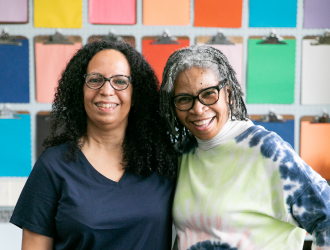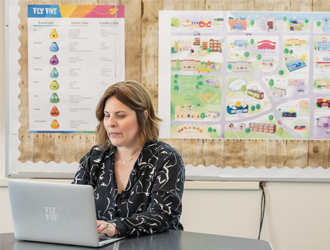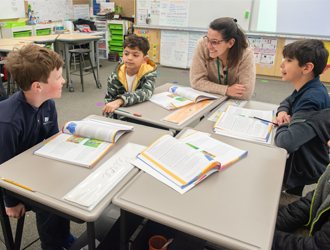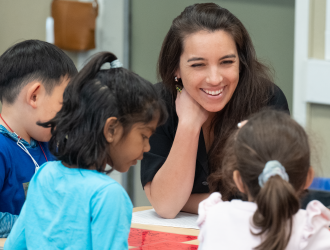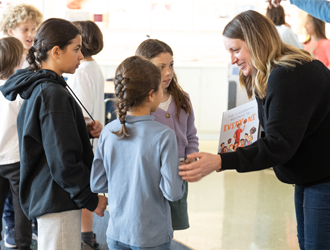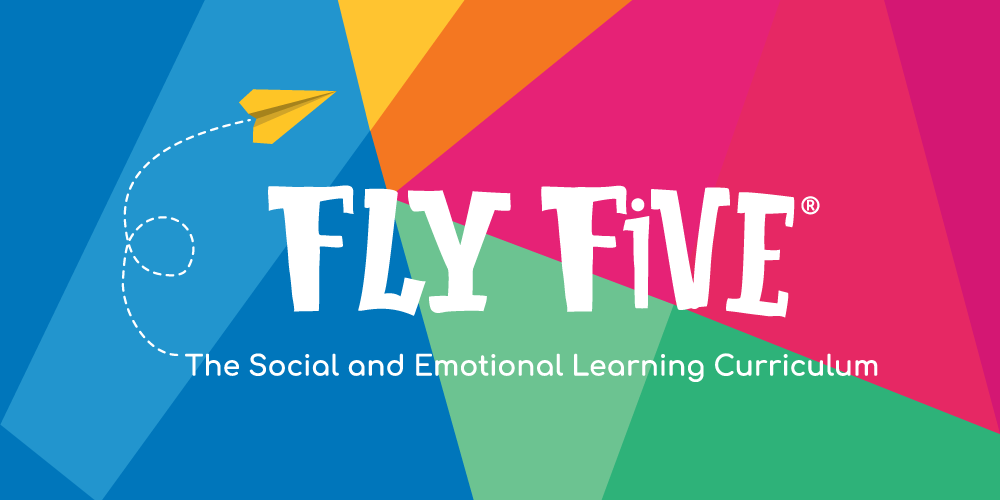The Importance of Strong Relationship Skills
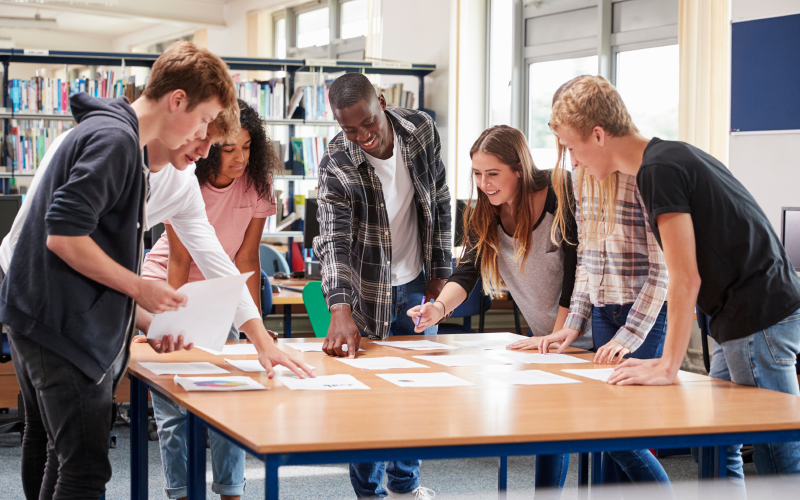
Cooperation is an essential skill that leads to building strong relationships in school, work and play. Through cooperative learning activities, students can learn how to work together to achieve a common goal, which can help them develop stronger relationships both in and out of the classroom.
Group work can be tricky—students must balance the needs of their fellow group members while also working toward the group’s common goal. How students act as team members and navigate effective collaboration impacts how others perceive them as leaders and vice versa. When teachers encourage peer-to-peer collaboration, students build positive relationships that are linked to stronger academic performance and a more positive view of their school (Roseth et al., 2018), which affects every aspect of their lives.
Effectively working as a group member or group leader is important for developing strong relationship skills that result in strengthened social bonds and increased community reciprocity among group members (“The Cooperative Human,” 2018). Relationship skills help you learn how to interact with others and develop relationships that last. When students are able to cooperate with others in the classroom, it shows that they have clear communication skills and can work well with multiple team members. For example, educators can continue to encourage students as they work with others toward a common goal by minimizing competition among group members and emphasizing effort-based goals over performance goals. (Buchs & Butera, 2015). When working with others, it’s important to remember that not everyone approaches work in the same way—and that’s okay! That’s why learning how to cooperate with others is key to building solid relationship skills.

What Is Cooperation?
Cooperation is foundational for nearly every social relationship and for forming positive friendships and social units (Fehr & Schurteberger, 2018). In the classroom, it has the potential to transform what learning means to students, as cooperating can reposition knowledge acquisition from something outside of them to a dynamic, creative, and generative process they already possess (Sharan, 2010). Fly Five defines a cooperative classroom that looks and sounds like “students establishing new relationships and friendships, knowing how to avoid social isolation, and resolving conflicts and accepting differences while contributing to a positive classroom community.” Cooperation is about staying flexible and open, understanding other points of view, and learning how to respectfully disagree with peers. For example, when two students are assigned to work together, it is important that they are able to communicate effectively in order to establish new relationships and contribute to a positive classroom environment. While developing these skills, they can continue to work together to complete the task at hand. When challenges arise, it is important to problem-solve by finding and understanding different conflict resolution styles (Buchs & Butera, 2015). For students, being able to cooperate, communicate effectively and resolve conflicts constructively, are essential in the classroom, as well as in the workforce.
Working as a part of a group gives students the opportunity to simultaneously connect with others while taking on the necessary roles to get the work completed. This requires students to be flexible in both leading and supporting others. The abilities to contribute as a leader and use personal strengths to work toward completing a goal are both important facets of cooperation. Students learn to change roles within a group, which promotes a productive and respectful group environment (Gauvain, 2018) and allows them to gain experience across different leadership roles. Being able to work as both a leader and a member of a group also encourages students to see that every role has importance and brings value to the team.
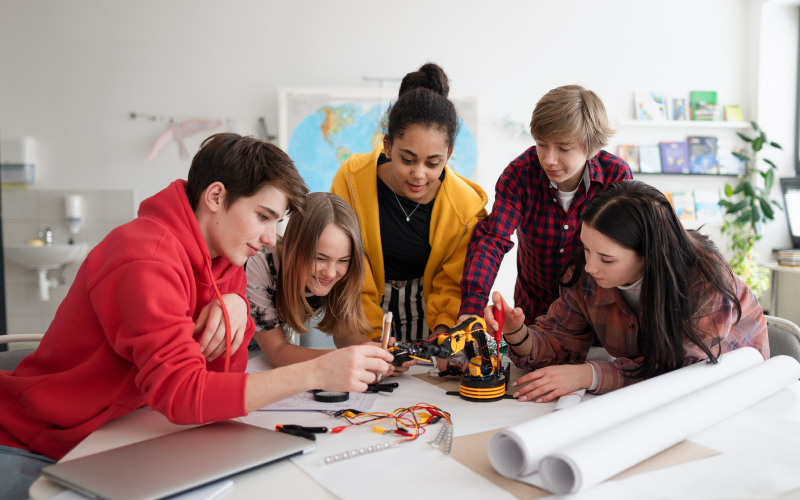
Connecting Cooperation With Relationship Skills
Developing cooperation skills directly impacts students’ ability to foster strong relationships with their peers. When students cooperate as team members and leaders, they learn to listen to and respect one another’s opinions. They also learn how to work together to achieve a common goal and contribute their skills and strengths to their role within the group. Some examples of skills that students develop as a result of working cooperatively with a team include:
- Building skills in management, planning, and problem-solving
- Managing others effectively
- Being able to share diverse perspectives with others
- Making sound decisions amongst peers
Each of the above skills contributes to a strengthened ability to foster positive relationships with others. As students build on their cooperation skills, they will be more equipped to handle conflict and work in cohesion, which sets the stage for positive interdependence among students (Grzimek et al., 2020). For educators, it is also important to set the conditions for group work through a carefully arranged social context, complete with constructive feedback and time for reflection and adjustments. (Gauvain, 2018).
These skills go hand in hand when it comes to leadership and group member roles. Together they form a foundation of connection, communication, and problem-solving that can help students succeed. These lifelong skills are essential for students and can help them in all aspects of their lives, from school to work and play. If students learn how to work together and lead effectively, they can be successful in anything.
To learn more about group leadership and group member roles, check out our other articles here: Fly Five Articles.
References
Buchs, C., & Butera, F. (2015). Cooperative learning and social skills development. In R. Gillies (Ed.), Collaborative learning: Developments in research and practice (pp. 201–217). Nova Science Publishers.
The cooperative human. (2018). Nature Human Behavior, 2, 427–428. https://doi.org/10.1038/s41562-018-0389-1
Gauvain, M. (2018). Collaborative problem solving: Social and developmental considerations. Psychological Science in the Public Interest, 19(2), 53–58. https://doi.org/10.1177/1529100618813370
Sharan, Y. (2010). Cooperative learning for academic and social gains: Valued pedagogy, problematic practice. European Journal of Education, 45(2), 300–313. https://doi.org/10.1111/j.1465-3435.2010.01430.x
Grzimek, V., Kinnamon, E., & Marks, M. B. (2020). Attitudes about classroom group work: How are they impacted by students’ past experiences and major? The Journal of Education for Business, 95(7), 439–450. https://doi.org/10.1080/08832323.2019.1699770
Roseth, C. J., Johnson, D. W., & Johnson, R. T. (2008). Promoting early adolescents’ achievement and peer relationships: The effects of cooperative, competitive, and individualistic goal structures. Psychological Bulletin, 134(2), 223–246. https://doi.org/10.1037/0033-2909.134.2.223



